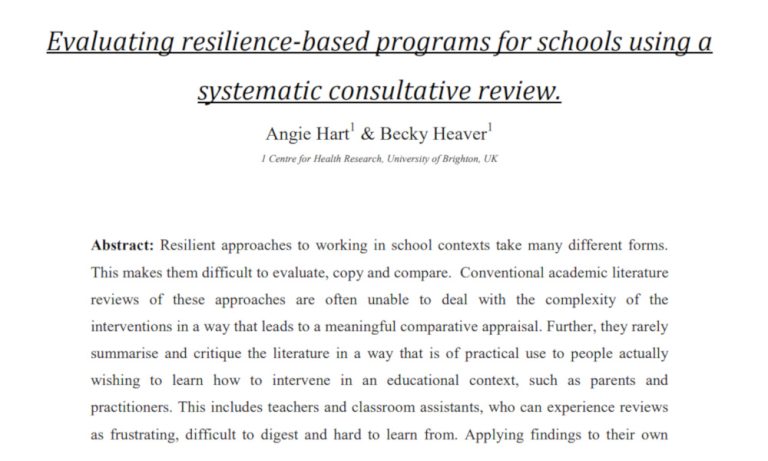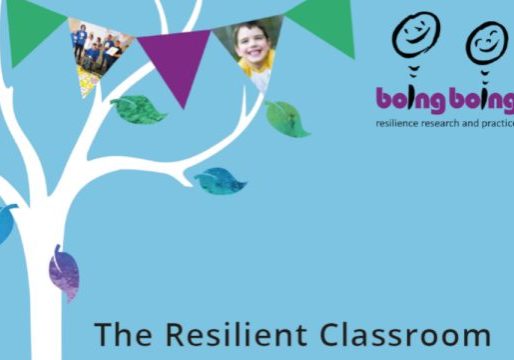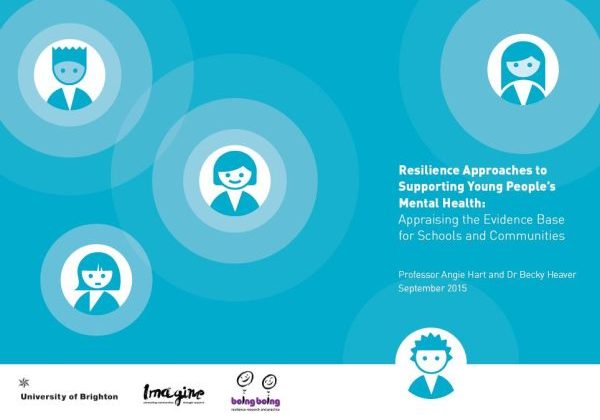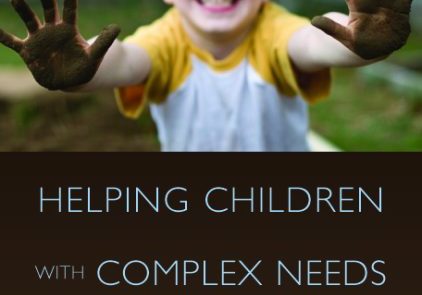The aim of this paper is to explain how and why school-based resilience approaches for young people aged 12-18 do (or do not) work in particular contexts, holding in mind the parents and practitioners who engage with young people on a daily basis, and whom we consulted in the empirical element of our work, as our audience.
Evaluating resilience-based programs for schools using a systematic consultative review

Related Resources

The Resilient Classroom Resource
This resilient classroom resource was created and developed to provide practical help for tutors and other pastoral staff and is suitable for use in the tutor group setting. It supports the tutor group structure and helps build relationships between tutors and students. Students and heads of years have been involved, through consultation and participation, in providing useful and appropriate exercises.

Our schools-based resilience projects
Our schools-based resilience research adapts the Resilience Framework for use in schools and helps schools make resilient moves across the whole school community. Many different types of school are working with us on this.

Helping Children with Complex Needs Bounce Back
Resilient Therapy is an innovative way of strengthening children with complex needs, that anyone can use. This tried-and-tested handbook is accessible and fun, includes exercises and worksheets, and breaks down research to apply to everyday situations.